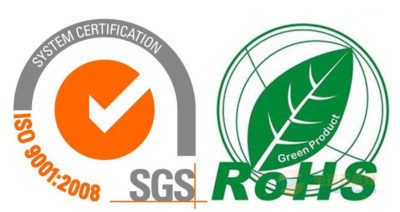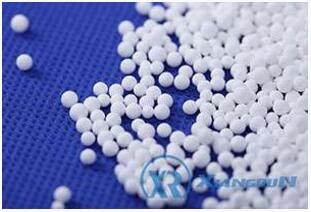
XR112 activated alumina for defluorination in hydrofluoric alkylation effectively removes fluoride from hydrocarbons in HF alkylation. Low levels of hydrofluoric acid are filtered through alumina beds.
Alkylation is the process of reacting isobutene with either propylene or butylene to produce C3 or C4 alkylate. This reaction is conducted in the presence of a strong acid which acts as a catalyst. Hydrofluoric acid (HF acid) is one of the two accepted methods for producing alkylate in an oil refinery (sulfuric acid is the other).From the depropanizer, propane contaminated with HF acid is fed to a stripper and then catalytically defluorinated.The catalyst utilized for deflourination is XR112 activated alumina balls. This alumina ball has a high surface area and a well-defined pore structure.
Characteristics of activated alumina for defluorination in hydrofluoric alkylation:
• High surface area
• Large pore size and control over smaller pores
• High crush strength
|
Item |
Unit |
Technical requirement |
|
Particle size |
mm |
3-5 |
|
AL2O3+Promotor |
% |
≥93 |
|
SiO2 |
% |
≤0.10 |
|
Fe2O3 |
% |
≤0.04 |
|
Na2O |
% |
≤0.40 |
|
Attrition Loss |
% |
≤0.08 |
|
Bulk density |
g/ml |
≥0.75 |
|
Surface area |
㎡/g |
≥320 |
|
Pore Volume |
ml/g |
≥0.45 |
|
Crushing Strength (N/Particle) |
N/particle |
≥180 |
Application of activated alumina for defluorination in hydrofluoric alkylation:
XR112 activated alumina ball is used for defluorination in Hydrofluoric alkylation.
Storage:
lAvoid moisture, avoid scrolling, throw and sharp shocking during transportation, rainproof facilities should be readied..
lIt should be stored in dry and ventilated warehouse to prevent contamination or moisture.
Package:
|
Type |
Plastic bag |
Drum |
Drum |
Super sack/Jumbo bag |
|
Bead |
25kg/55lb |
25 kg/ 55 lb |
150 kg/ 330 lb |
750kg/1650lb 900kg/1980lb 1000kg/ 2200 lb |


